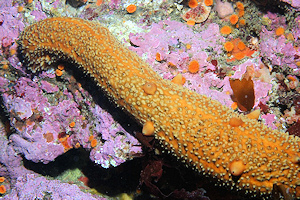The Importance of Sea Cucumbers in Ecosystems and Economies

Introduction
Sea cucumbers, marine animals found on the ocean floor, are crucial to their ecosystems and hold great relevance in global economies. As a source of nourishment for various marine species, they play an essential role in maintaining the health of ocean habitats. Moreover, sea cucumbers have been gaining popularity as a delicacy in countries like China, drastically impacting fisheries and conservation efforts. This article explores the significance of sea cucumbers and the challenges they face today.
The Ecological Role of Sea Cucumbers
Sea cucumbers are vital for the ocean ecosystem, acting as natural recyclers. They feed on organic matter and sediment, processing it and returning nutrients to the marine environment. By breaking down debris and enhancing the quality of sediment, they contribute to a healthier aquatic habitat. This bioactivity supports not only the organisms living around them but also improves water quality by regulating nutrient cycling.
Economic Importance of Sea Cucumbers
In recent years, the demand for sea cucumbers has skyrocketed, especially in Asian markets, where they are considered a delicacy and are used in traditional medicine. For instance, the global market for sea cucumbers is estimated to be worth over $300 million, with Asian countries leading in both consumption and exportation. Fisheries rely heavily on this resource, yet the intense harvesting has led to concerns over sustainability.
Challenges and Conservation Efforts
Despite their ecological and economic importance, sea cucumbers face significant challenges. Overfishing has led to severe declines in certain populations worldwide. In regions like Southeast Asia, where they are harvested in large volumes, the pressure on stocks has raised alarms about the long-term viability of sea cucumber fisheries. To combat this, various steps are being taken: regulations on harvesting practices, establishing marine protected areas, and promoting sustainable aquaculture practices. Governments and NGOs are working to implement strategies to ensure the future of both sea cucumbers and the ecosystems they inhabit.
Conclusion
Sea cucumbers are more than just a culinary delicacy; they serve critical ecological roles and bolster economies around the world. As the demand for these marine creatures continues to rise, the need for responsible management and conservation becomes increasingly urgent. For consumers, this means being aware of the sources of their seafood and choosing sustainably harvested options, contributing to the preservation of both the species and the health of our oceans.









